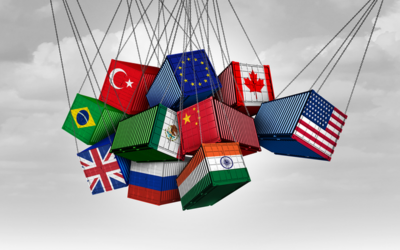Several of my colleagues at Trevelino/Keller carry iPhones (all of them on Verizon Wireless, as we have a long standing relationship with that company). My husband and several friends also have them. And app developers clamor to get their app on that iconic device first. My question is: WHY?
As an Android user, I find the OS platform of that device much more sophisticated. Even typing is easier with the Swype technology offered on the Droid. As USA Today recently reported <http://www.usatoday.com/tech/news/story/2012-03-03/apple-iphone-android-smartphone/53334436/1> , Droid’s integration with Google is also a huge advantage that the iPhone doesn’t offer: “Gmail’s ubiquity means that just about everyone can benefit from Android’s superior native Gmail app. Beyond Gmail, Android’s version of Google Maps <http://content.usatoday.com/topics/topic/Culture/Computers+and+Internet/Google+Inc> offers some unique and extremely useful features like Google’s Navigation, a GPS-driven, turn-by-turn directions app for the car that’s a solid substitute for a stand-alone GPS system. If you’re plugged into Google’s Web world, you’ll feel right at home on Android.” They also agree with me regarding the OS: “On the whole, Android is a more flexible OS. If there’s something that bugs you about your phone or some setting you’d like to tweak, odds are an app on the Android Market does just that. Even a simple setting on the phone itself may control what you need. A set of slick apps known as “launchers” can even modify the look and feel of Android entirely. Truly, no two Androids are alike.”
But perhaps most importantly, I question why anyone would get a device that is NOT enabled for 4G. The speed of everything you do on your phone when you are taking advantage of a carrier’s 4G network is nothing short of amazing. It makes you more productive, more efficient and I would argue even better informed. The LTE version of 4G (offered by Sprint and Verizon Wireless) offers speeds as much as 10 times faster than the more ubiquitous 3G networks. Why would a small business, for example, want its staff working slower? And as for the app developers, why let users experience your app on a slower network?
There has been no shortage of iPhone vs. Droid articles written in both consumer and tech trade publications. Most reviews about the devices’ functionality come out fairly equal. But not enough emphasis is given to the 4G functionality of the Droid devices, in my opinion. In a recent article, The Wall Street Journal’s tech guru, Walt Mossberg, compared the 4G networks of the four largest telecoms in the U.S.–Verizon, AT&T, Sprint, and T-Mobile. Mossberg found Verizon’s LTE network to be up to 32 times faster than some public Wi-Fi networks. Thirty-two times faster, people!!!! That’s like racing Mario Andretti on your 10-speed bike. Why would you do that? You wouldn’t . . . if given the opportunity, you’d use an equally fast car. So why be a Verizon customer, for example, and NOT have a 4G LTE enabled phone? I don’t get it.
I’m not arguing the iconic nature of the iPhone and even the easy-to-understand interface of that well-designed device. I am, however, suggesting that by being sucked onto the iPhone bandwagon users of that device don’t know what they are missing in terms of what today’s wireless networks can offer. Real speed = greater efficiency in today’s super busy culture.
What do you think – have you experienced 4G LTE speeds? Does the iPhone design outweigh 4G benefits?
-Kira Perdue
@KPerdue


